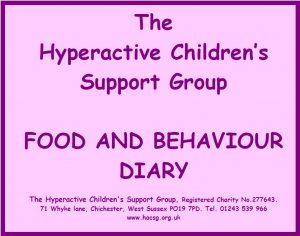The Hyperactive Children’s Support Group was the first to propose that fatty acid deficiency could be a factor in ADHD. The findings of this research were published in 1981, “A Lack of EFAs as a possible cause of hyperactivity in children” (Medical Hypotheses, 7(5), 1981, Irene Colquhoun & Sally Bunday).
The Colquhoun/Bunday hypotheses stimulated further studies and treatment trials which have generally supported the theory.
Notable trials include
- The Oxford-Durham Study A Randomised Controlled Trial of Dietary Supplementation in children with Developmental Coordination Disorder (DCD). Researchers in the county of Durham, in association with colleagues at Oxford University, used the Equazen eye q Omega-3 fish oil supplement as the active treatment in an RCT of 117 school children with specific learning conditions. Significant improvements in reading, spelling and attention were found. Richardson AJ, Montgomery P. Paediatrics. 2005 May 115 (5): 1360-6
- Richardson & Puri 2002 A Controlled Study of the Effects of Fatty Acid Treatment on ADHD Symptoms in Dyslexic Children
- Sinn, N. & Bryan, J. (2007) Effect of supplementation with polyunsaturated fatty acids and micronutrients on ADHD-related problems with attention and behaviour. This RCT involved 132 school children and investigated the effect of supplementation with polyunsaturated fatty acids (PUFAs), along with micronutrient supplementation, on symptoms typically associated with childhood ADHD. The researchers found significant benefits for the core symptoms of ADHD: inattention, hyperactivity and impulsivity.Journal of Developmental & Behavioral Pediatrics, 28(2): 82-91
- Sinn, N. et al. (2008) Cognitive effects of polyunsaturated fatty acids in children with attention deficit hyperactivity disorder symptoms: A randomised controlled trial. A subsequent statistical analysis of the data in the above trial revealed that the observed benefits accredited to PUFA supplementation on behaviour and ADHD-related symptoms, were mediated by cognitive improvements involved with the ability to focus and switch attention during tasks. Prostaglandins Leukotrienes Essent. Fatty Acids, 78 (4-5): 311-362
- Johnson, M. et al. (2008) Omega-3/Omega-6 Fatty Acids for ADHD. A Randomized Placebo-Controlled Trial in Children and Adolescents. A child psychiatry clinic in Sweden used eye q to investigate how the supplement may benefit learning and behavioural difficulties in children with a clinical diagnosis of ADHD. This 9-month RCT, with a cross-over at 3 months, involved 84 children aged 8-16 years. Although initially, no significant differences were immediately apparent between the supplementation and control groups, a subset of children typified by suffering from multiple, co morbid, disorders did show statistically significant improvements in symptoms following supplementation. A general trend towards greater improvement in those taking eye q compared to placebo was also observed. Journal of Attention Disorders. (Article in press)
- Essential Fatty Acid Metabolism in Boys with ADHD Laura J Stevens, Sydney Zentall et al American Journal of Clinical Nutrition 1995; 62 761-8
- Omega-3 in Dyslexia, ADHD & Dyspraxia – from Attention to Action Professor John Stein, Professor of Neurophysiology, University of Oxford; pub. FAB Research 2008
- Pereva H, Jeewandara KC, Seneviratnese Gurage C. (2012) Combined Omega-3 and Omega-6 Supplementation in Children with ADHD Refractory to Methylphenidate Treatment – a double blind placebo controlled study. Journal of Child Neurology 24: 747-753

Further information on the role of EFAs and co-factors is available in our special booklet “Essential Fatty Acids, Vitamins & Minerals and their role in ADHD/Hyperactivity available from Our Publications page.

 The HACSG Food & Behaviour Diary is now available online.
The HACSG Food & Behaviour Diary is now available online. 